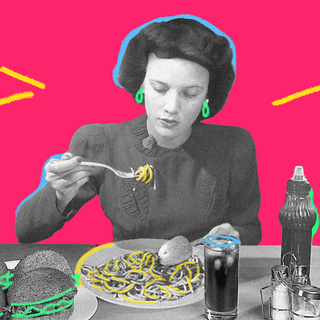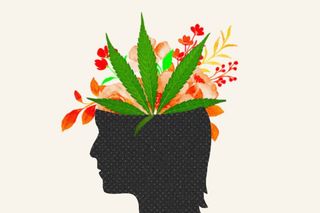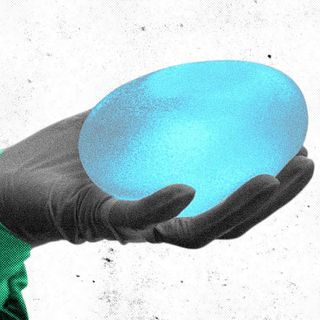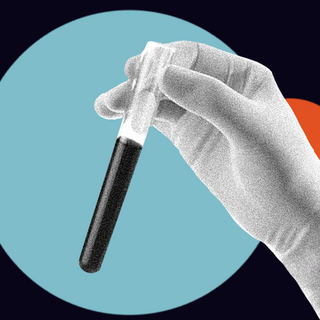
Cannabis May Improve the Quality of Autistic Adults’ Lives, Suggests Study
The objective isn’t to modify people’s autistic traits, but address the burden of associated symptoms like generalised and social anxiety.

The quality of life among autistic adults is shaped by two things: the experience of living with autism in itself, and the manner in which autism is perceived by people around them. In a society designed for neurotypical brains, autistic people often end up feeling helpless and lonely — impacting their mental health. In addition, the ableism an autistic person is often forced to encounter on a daily basis worsens matters — overall, bringing down their quality of life.
A new study seeks to address that without attempting to modify one’s autistic traits — given that, clearly, that’s not where the problem appears to lie. “Adults with [autism spectrum disorder (ASD)] face an array of challenging symptoms associated with the condition, which can have a devastating impact on their quality of life. The goal of treatment here is not to modify the core traits of autism. These can be valuable and invariably form a core part of a person’s identity,” noted co-author James Rucker, a consultant psychiatrist at Sapphire Medical Clinics.
Published in Therapeutic Advances in Psychopharmacology, the study investigated the impact of medicinal cannabis on 74 autistic participants with an average age of 33. The participants self-reported their experiences at one, three, and six-month intervals, respectively. The cumulative assessment of their responses suggested improvements in health-related quality of life, anxiety, depression, and sleep.
This led the researchers to deem medicinal cannabis as a “promising novel therapeutic” — an underexplored channel to alleviate the ableism-spawned burdens of living as an autistic individual in a world where “acceptance” is more of a buzzword than a reality.
Related on The Swaddle:
Cannabis Users Are Likely To Be Nicer, More Empathetic: Study
“[T]reatment with [cannabis-based medicinal products (CBMPs)] helps to alleviate the burden of associated symptoms, including debilitating generalized and social anxiety, severe insomnia, repetitive and distressing patterns of thought, and the emotional distress that can often occur in response to rapid change,” Rucker explained.
The researchers also found that medicinal cannabis was “well tolerated” by more than 80% of the participants. About 18% did experience adverse effects — like fatigue, dry mouth, and inability to focus — but they ranged between mild-to-moderate, and weren’t life-threatening, as the study notes.
Medical cannabis can also address the limitations of medications currently prescribed to people. Benzodiazepines (used in the treatment of anxiety and insomnia, among others) and antipsychotics (used to reduce a variety of symptoms, including paranoia, delusions, and muddled thinking) each have their own range of side effects — with their impacts on neurodivergent brains possibly being under-researched. The researchers noted that participants, who were prescribed benzodiazepines, witnessed a 33% drop in prescriptions. Similarly, participants on antipsychotics noticed a 25% drop in prescriptions for the drug.
Past research, too, has explored the impact of medicinal cannabis on autistic children, adolescents, and adults alike. Two studies — one from 2018 and another from 2019 — recorded cannabis-led improvements in the quality of autistic individuals’ lives, especially in terms of depression, restlessness, and anger. In fact, in many parts of the world, medical marijuana is already approved for usage among autistic individuals.
Related on The Swaddle:
New Cannabis Research Debunks the Myth of ‘Lazy Stoners’
However, the study isn’t an endorsement of cannabis use; it explores the benefits of medical cannabis, in particular, which is controlled and carefully prescribed by designated medical practitioners.
Not only is non-medical cannabis illegal in many countries, but also smoking, one of the ways in which marijuana is commonly consumed, can be really bad for health. In addition, cannabis can also mess with other medications that one might be on. As such, unregulated use — especially of non-medical marijuana that may be laced with toxic chemicals like pesticides — is strongly discouraged by experts.
As Spectrum, a website dedicated to reporting autism-focused research, notes, “[Cannabis] products contain varying levels of active ingredients, including tetrahydrocannabinol (THC) — responsible for the ‘high’ associated with marijuana — and cannabidiol (CBD)… CBD is considered minimally psychoactive, but many preparations of it contain undisclosed amounts of THC, which may lead to inadvertent intoxication and impairment.”
And so, the message remains: Medicinal cannabis could potentially be a boon for autistic adults struggling to survive in a neurotypical world. But indiscriminate usage of non-medical marijuana might have adverse impacts too — just as it can for the neurotypical population. The solution, then: more research.
Thankfully, that’s next on the researchers’ agenda. Lead author Simon Erridge, head of research and access at Sapphire Medical Clinics, said: “These findings, whilst promising, do highlight the fact that further evaluation is required to improve our understanding of the potential benefits of medical cannabis for adults with ASD.”
Devrupa Rakshit is an Associate Editor at The Swaddle. She is a lawyer by education, a poet by accident, a painter by shaukh, and autistic by birth. You can find her on Instagram @devruparakshit.
Related


Breast Implants May Be Associated With Risk of Skin Cancer, Warns U.S. Body
